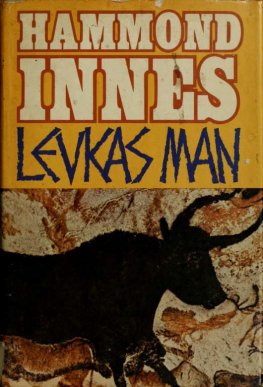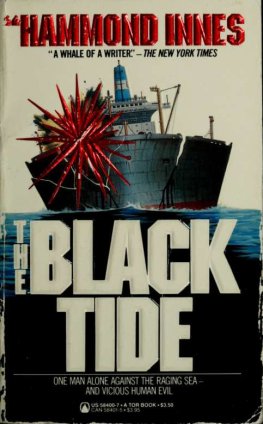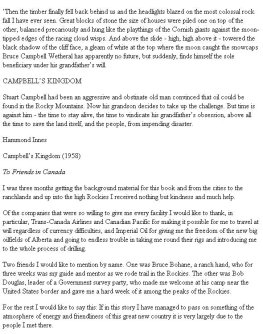Hammond Innes - Atlantic Fury
Here you can read online Hammond Innes - Atlantic Fury full text of the book (entire story) in english for free. Download pdf and epub, get meaning, cover and reviews about this ebook. genre: Adventure. Description of the work, (preface) as well as reviews are available. Best literature library LitArk.com created for fans of good reading and offers a wide selection of genres:
Romance novel
Science fiction
Adventure
Detective
Science
History
Home and family
Prose
Art
Politics
Computer
Non-fiction
Religion
Business
Children
Humor
Choose a favorite category and find really read worthwhile books. Enjoy immersion in the world of imagination, feel the emotions of the characters or learn something new for yourself, make an fascinating discovery.

- Book:Atlantic Fury
- Author:
- Genre:
- Rating:4 / 5
- Favourites:Add to favourites
- Your mark:
- 80
- 1
- 2
- 3
- 4
- 5
Atlantic Fury: summary, description and annotation
We offer to read an annotation, description, summary or preface (depends on what the author of the book "Atlantic Fury" wrote himself). If you haven't found the necessary information about the book — write in the comments, we will try to find it.
Atlantic Fury — read online for free the complete book (whole text) full work
Below is the text of the book, divided by pages. System saving the place of the last page read, allows you to conveniently read the book "Atlantic Fury" online for free, without having to search again every time where you left off. Put a bookmark, and you can go to the page where you finished reading at any time.
Font size:
Interval:
Bookmark:
Hammond Innes
Atlantic Fury
As to the effect of a mental or moral shock on a common mind that is quite a legitimate subject for study and description.
Joseph ConradPART I
CHAPTER ONE
(October 12 I3)
The decision to withdraw the Unit from Laerg was taken early in October. That it was a fatal decision is now obvious. It was taken too late in the year, and in the initial phases the operation was carried out with too little sense of urgency. Whether the disastrous consequences of that decision would have been avoided if the personalities involved had been different I cannot say. Certainly personality played a part in what happened. It always does. A decision that calls for action involves men, and men cannot escape their own natures; their upbringing, their training, their basic characters. Moreover, in this particular case, a series of mishaps, unimportant in isolation, but cumulatively dangerous in combination with the colossal forces unleashed against us, led inevitably to disaster
This was the opening paragraph of a statement I found among my brothers papers. It was written in his own hand, when his mind was still lucid. Intended as a refutation of the charges brought against him, the statement was never completed. Together with his notes and all his other papers, it lies before me now in the lamplight as I embark on the task of writing this account of the disaster. And the fact that I am writing of it in the solitariness of my winter isolation here on Laerg, with the same violent winds battering at the door, the same damp, salt-laden atmosphere blackening the night outside and Sgeir Mhor standing like a battlement against the Atlantic, will I hope give it a clarity not otherwise possible; that, and the fact that I was involved in it, too.
Not directly, as my brother was; and not with his burden of responsibility. Laerg was a military establishment at the time, and I am an artist, not a soldier. But for both of us it held a fatal fascination. It was in our blood, and looking back on it, our paths crossing after so many years and in such circumstances, there seems to have been something inevitable about it, as though Laerg itself were an integral part of the pattern of our lives.
There is, of course, no mention in my brothers notes of his personal reasons for wanting the Army out of Laerg, no hint of the fearful thing that drew him back to the island. And the fact that he had been so many years in the Army inhibited him in his writing. For instance, he gives no account of his interviews with Standing. He merely states the facts and leaves it at that, so that there is no indication of his relations with his Commanding Officer. Fortunately I have my own notes from which to work. These last few months I have interviewed most of the men involved in the disaster. As a result I have been able to add considerably to my personal knowledge of what happened. I have also had access to the depositions taken at the Board of Inquiry and also to the transcripts covering the first two days of the abortive Court Martial. There are still gaps, of course. So many men were killed. If I could have talked with Colonel Standing, for instance
However, the picture in my mind is as complete as it can ever be. And that picture is dominated, of course, by Laerg. Laerg forbidding and mysterious, rising out of the Atlantic like the last peaks of a submerged land, its shaggy heights lost in cloud, its massive cliffs resounding to the snowflake swirl of millions of seabirds. Laerg dwarfs the men, the ships; it dominates the whole story.
Until that October I had never even seen Laerg. This may seem strange, considering my father was born there and that Id been half in love with it since I was a kid. But Laerg isnt the sort of place you can visit at will. It lies more than eighty miles west of the Outer Hebrides, a small island group composed of Laerg itself, which with Eileann nan Shoay and Sgeir Mhor constitutes the main island; the bare rock islet of Vallay; and Fladday with its attendant stacs of Hoe and Rudha. Eighty sea miles is no great distance, but this is the North Atlantic and the seven islands of the Laerg group are a lonely cluster standing on the march of the great depressions that sweep up towards Iceland and the Barents Sea. Not only are sea conditions bad throughout the greater part of the year, but the islands, rising sheer out of the waves to a height of almost 1,400 feet, breed their own peculiar brand of weather.
Oddly enough, it wasnt my father whod made me long to go to Laerg. He seldom talked of the island. Hed gone to sea as a young man and then married a Glasgow girl and settled as a crofter on Ardnamurchan after losing his nerve in a typhoon. It was Grandfather Ross who filled our heads with talk of our island ancestors.
This gnarled old man with a craggy face and huge hands had been a powerful influence in both our lives. Hed come to live with us following the evacuation of the islanders in 1930. Hed been the only man to vote against it when the Island Parliament made its decision, and to the day he died in 1936 hed resented living on the mainland. It wasnt only that he talked endlessly of Laerg; in those six years he taught my brother Iain, and myself, everything he knew about the way to live in a world of rock and towering heights where sheep and birds were the raw materials of existence.
Id tried to get there once a long time ago, hiding away on a trawler anchored in the bay below our croft. But that trip they hadnt gone within a hundred miles of Laerg, and then the war came and I joined Iain, working in a Glasgow factory making shell cases. A year in the Navy and ten years at sea, tramping, mainly in old Liberty ships, and then I had embarked on the thing I had always wanted to do I began to study as a painter. It was during a winter spent in the Aegean Isles that I suddenly realised Laerg was the subject that most attracted me. It had never been painted, not the way my grandfather had described it. Id packed up at once and returned to England, but by then Laerg had become a tracking station for the new rocket range on Harris. It was a closed island, forbidden to unauthorised civilians, and neither the Army nor Nature Conservancy, who leased it from the National Trust for Scotland, would give me permission to visit it.
That was the position until October of the following year when a man called Lane came to my studio and I was caught up in my brothers strange story and the events that led to the disaster. But first I must give the background to the Armys decision to evacuate Laerg, for without that decision the disaster would never have happened.
The future of the tracking station was discussed at a Conference held in the Permanent Under-Secretarys room at the War Office and the decision to close it was confirmed by the Director Royal Artillery at a meeting in his office four days later. In my reconstruction of the Conference I am indebted to the frankness with which the DRA described it to me. For the details of the subsequent meeting I have also had the benefit of talks with his Brigadier General Staff and with Brigadier Matthieson, the Brigadier Royal Artillery, Scottish Command. The latter, in addition, was able to recall for me in considerable detail his conversation with Braddock on the night train going north. These two senior officers both gave evidence at the Court Martial and my talks with them were supplementary to that evidence.
First then, the Conference. This was held on October 7 and in addition to the Permanent Under-Secretary for War, there were present the Director of Finance, the Director Royal Artillery, and, during the vital discussion on the fate of Laerg, a member of the staff of the Ordnance Board. The object of the conference was to review Royal Artillery expenditure for the current financial year. This was one of a series of War Office conferences necessitated by the Prime Ministers refusal to face the House with supplementaries to the original Estimates.
Font size:
Interval:
Bookmark:
Similar books «Atlantic Fury»
Look at similar books to Atlantic Fury. We have selected literature similar in name and meaning in the hope of providing readers with more options to find new, interesting, not yet read works.
Discussion, reviews of the book Atlantic Fury and just readers' own opinions. Leave your comments, write what you think about the work, its meaning or the main characters. Specify what exactly you liked and what you didn't like, and why you think so.




